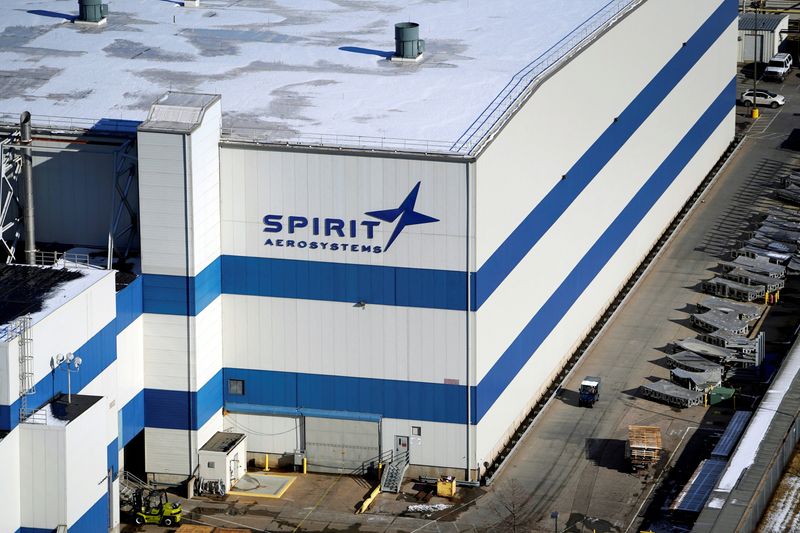By Tim Hepher and Allison Lampert
PARIS/MONTREAL (Reuters) -Airbus and Spirit AeroSystems (NYSE:SPR) have explored the idea of the European planemaker taking over a plant in Belfast, Northern Ireland, where Spirit makes wings for the A220 but no such deal is likely in the short term, industry sources said.
An Airbus spokesperson said it had no comment on M&A speculation.
A spokesperson for Spirit, which has said it is in ongoing contractual price negotiations with Airbus, said "we continue discussions with Airbus. We value our partnership with Airbus".
Airbus bought the 110-130-seat CSeries passenger jet programme from Canada's Bombardier (OTC:BDRBF) in 2018 and renamed it A220.
Cash-strapped Bombardier subsequently sold the Belfast plant, where it had started building the jet's carbon-composite wings, to Spirit, which is in turn a former subsidiary of Boeing (NYSE:BA).
The Wall Street Journal reported earlier that Boeing is in talks to buy back Spirit which is struggling with cash flow problems.
Spirit has said it is negotiating higher prices with Airbus having reached a pricing deal with Boeing. Airbus, on the other hand, has pushed in the past for Spirit to cut prices as part of efforts to bring the A220 into the black, the sources said.
By-passing the pricing talks by bringing the loss-making wing manufacturing for the A220 in-house is not seen as Airbus' preferred option, but the question of ownership could become a more urgent topic if Spirit is re-absorbed into Boeing.
Bombardier bought Northern Ireland's largest manufacturing employer from Short Brothers, the world's oldest planemaker, in 1989.
In 2017, the politically sensitive plant was caught in the cross-hairs of a dispute between Boeing and Bombardier about aircraft subsidies.

It employs innovative techniques to build wings for the A220, reducing the involvement of energy-guzzling autoclaves or pressurised ovens.
But industry sources say the wings are built at a significant loss, meaning Airbus could be forced to redesign them at an estimated cost of $1-2 billion to make them profitable to build if it eventually took control of the plant.